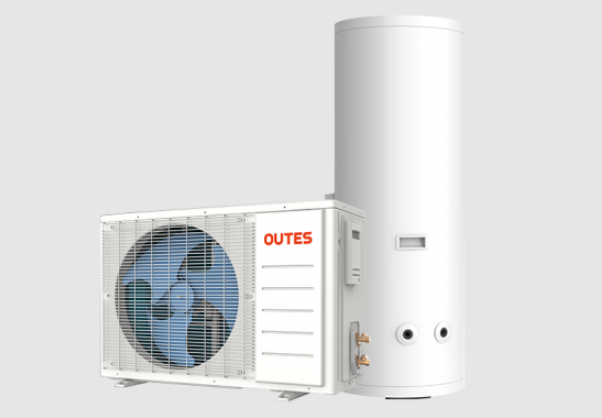May. 14, 2024
Monoblock heat pumps have become a popular choice for many homeowners due to their efficiency, ease of installation, and the benefits they offer in both heating and cooling. However, a common question that arises is whether these systems require specialized maintenance. In this comprehensive guide, we will delve into the nuances of monoblock heat pump maintenance, exploring what makes it unique, the specific tasks involved, and how to ensure your system runs optimally.

Monoblock heat pumps are self-contained units that house all components within a single casing. This design contrasts with split systems, which have separate indoor and outdoor units. The all-in-one nature of monoblock heat pumps simplifies installation and reduces the potential for issues related to interconnecting pipework and refrigerant leaks.
These systems operate by transferring heat from one place to another. During the winter, they extract heat from the outside air and move it indoors. Conversely, in the summer, they can reverse the process, cooling the indoor air by expelling heat outside. This cycle relies heavily on the refrigeration cycle, involving components such as compressors, evaporators, and condensers, all housed within the monoblock unit.
Regular inspections are crucial for maintaining the efficiency and longevity of a monoblock commercial heat pump. These inspections should include:
Visual Checks: Inspecting the exterior of the unit for any signs of damage, corrosion, or debris buildup.
Cleaning the Coils: Both the evaporator and condenser coils should be kept clean to ensure efficient heat exchange. This involves removing any dirt, dust, or debris that can accumulate over time.
Filter Replacement: Air filters should be checked monthly and replaced as needed. Clean filters are essential for maintaining airflow and system efficiency.
Proper refrigerant levels are vital for the optimal performance of a monoblock heat pump. Low refrigerant levels can lead to decreased efficiency and potential damage to the compressor. During maintenance, technicians should:
Measure Refrigerant Levels: Using specialized tools, technicians can measure and adjust the refrigerant charge to the manufacturer’s specifications.
Leak Detection: Any drop in refrigerant levels typically indicates a leak, which needs to be identified and repaired promptly.
The electrical components of a monoblock heat pump Water Heater must be in good working order to avoid system failures and ensure safety. Maintenance tasks in this area include:
Inspecting Electrical Connections: Ensuring all connections are tight and free of corrosion.
Testing the Thermostat: Verifying that the thermostat is functioning correctly and accurately controlling the system.
Checking the Capacitors and Contactors: These components should be tested and replaced if necessary to prevent electrical failures.
Monoblock heat pumps from different manufacturers might have unique maintenance requirements. It's important to:
Follow the Manufacturer's Guidelines: Adhering to the specific maintenance protocols outlined in the user manual ensures the system operates as intended.
Use OEM Parts: When replacements are necessary, using original equipment manufacturer (OEM) parts can help maintain the integrity and performance of the system.
While some maintenance tasks can be performed by the homeowner, others require the expertise of a professional HVAC technician. Professional servicing typically includes:
Related links:Comprehensive System Diagnostics: Technicians can conduct thorough diagnostics to identify potential issues that are not apparent during routine checks.
Advanced Repairs: Professionals are equipped to handle more complex repairs, such as refrigerant leaks, electrical problems, or component replacements.
Preparing your monoblock heat pump for winter involves:
Clearing the Surrounding Area: Ensure that there is no vegetation, snow, or debris around the unit that could impede airflow.
Insulating Exposed Pipes: Any exposed pipes should be insulated to prevent freezing.
Checking the Defrost Cycle: Verify that the defrost cycle is functioning correctly to prevent ice buildup on the outdoor unit.
To prepare for the cooling season:
Clean the Outdoor Unit: Remove any debris or obstructions that could affect performance.
Test the Cooling Mode: Switch the system to cooling mode and check for proper operation.
Inspect the Ductwork: Ensure that the ductwork is clean and free of leaks to maintain efficient cooling.
Regular maintenance of monoblock heat pumps offers numerous benefits, including:
Enhanced Efficiency: Clean and well-maintained components ensure the system operates at peak efficiency, reducing energy consumption.
Extended Lifespan: Regular care can significantly extend the life of your heat pump, protecting your investment.
Improved Air Quality: Clean filters and coils contribute to better indoor air quality by reducing dust and allergens.
Reduced Repair Costs: Early detection of issues through routine maintenance can prevent costly repairs and system downtime.
Monoblock heat pumps, while relatively low-maintenance compared to other HVAC systems, do require specific care to maintain their efficiency and longevity. By adhering to a regular maintenance schedule, performing routine checks, and relying on professional servicing when needed, you can ensure your China heat pump operates efficiently year-round.
174
0
0
All Comments (0)
Previous: TAHR Series Slurry Pumps: Robust Solutions for Corrosive Industries
Next: Troubleshooting Guide for High Pressure Lined Slurry Pump
If you are interested in sending in a Guest Blogger Submission,welcome to write for us!
Comments